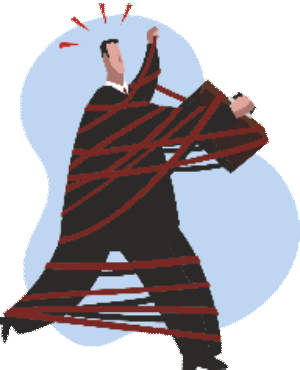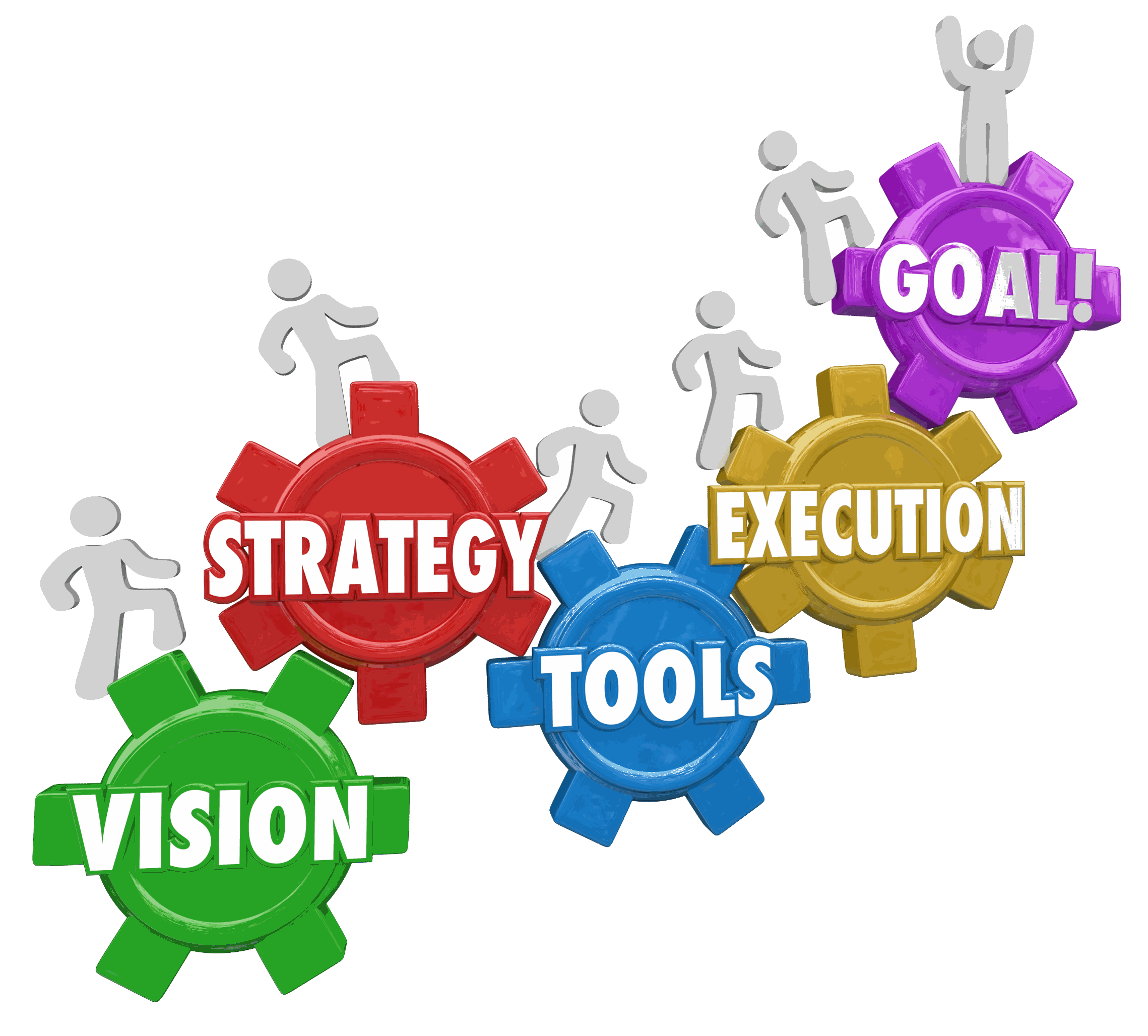
The symbols [►] & [▼] are links to the relevant
web-page or downloadable material respectively
[►] is a link to another website.
Bureaucratic Masochism ? Unnecessary Red Tape ?
 It often seems to be so.
It often seems to be so.
All that time and effort for it to sit forlorn and forgotten on a shelf - except for the odd occasions when it gets looked out and dusted off in case a grant giving body, or visiting inspector, asks to see it.
And even then it’s pretty much a waste of time looking at it – except for getting that all-important “tick in the box” – because times and contexts have long since moved on leaving the business plan out-of-date and largely irrelevant.
So why does it always seem so important to invest all that time and effort to get ourselves tied up in so much “red tape” when there are more important things to do?
 Or the difference between "OK" charities....
Or the difference between "OK" charities....
....and "GREAT" charities ?
Good planning helps a charity to achieve its charitable purposes more efficiently and effectively. In a time where charity funds are getting even harder to obtain, being able to do more better with less is always a good thing. Even more importantly it allows the charity to demonstrate its successes to its beneficiaries, volunteers, staff and the public - great for boosting morale and improving performance all round. And of course, in order to get funds from donors it is vital to be able to convince them that the money they give will be well and effectively spent.
Project or Programme?
Although projects and programmes have much in common, the term "Project" is usually reserved for an activity which has a specific outcome, usually with well-defined start and end dates, resources and budget. ie: it has a clear completion, perhaps accompanied by a "ceremonial" opening or inauguration - eg: building a road.
The term "Programme" is usually reserved for more wide-ranging activities which have less well-defined outcomes which may even evolve as the programme develops. Programmes therefore tend to have less well-defined completion dates (they may even be "ongoing" with no specific end date) and, hence the resources, budget, etc required will also "evolve" as the programme develops. And if there is an identifiable end-date at all it will typically be when the resources/budget have been used up, or sufficient has been achieved for the organisation to feel that it is "time to move on". eg: a road infrastructure development scheme will be a "programme" which includes several "road building projects".
"Programming for Success" [▼] is a guidance leaflet inspired by the book "Will it make the boat go faster" (describing the approaches used by the UK Olympic Rowing Team to achieve their goal of winning the gold medals). It gives some suggestions on how to go about creating a Programme Plan, particularly for those getting into Programme Planning for the first time.
"Outputs & Outcomes" [▼] is a leaflet explaining what these two key words mean in the context of Programme Planning. Thinking about them will not only improve the activities that the charity undertakes, but showing that you have thought about them and implemented them could improve your chances of getting grant funding for the programme or project.
Programme & Project Management
The management of large-scale programmes & projects is a professional job for which there are numerous training courses, qualifications and sophisticated software - as even a quick search of the internet will reveal. So support for the management of such large-scale programmes & projects is beyond the scope of Small Charity Support.
The NCVO occasionally runs basic courses in Programme & Project Management for charities - so check its website [►], or contact its helpline [►] for information on any forthcoming training courses.
However, our simple "Programme Planning Template" [▼] might be sufficient to get past the initial obstacle of "what to do with a blank sheet of paper".
And the Small Charity Support basic programme/project monitoring spreadsheet [▼] does not pretend to aspire to the level of professional sofware. But other charities have found it useful as a simple way to keep track of progress (or lack of progress) in individual tasks in small, simple projects and programmes.
Note: Like all Small Charity Support resources, the template & spreadsheet are free to use by charities and not-for-profit organisation, but may not be used and/or adapted for any commerical purpose.

Please remember to read our Legal Notice [►]
Your comments, to
Updated 31-Dec-22
